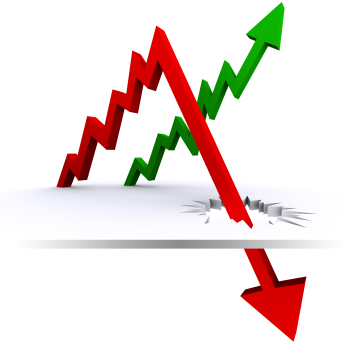Consequences of price volatility
 Many
developing economies produce mainly primary exports and also tend to
specialise in a relatively small range of these products (Factor
Endowments). This leaves them heavily reliant on the world prices of
relatively few products, which can be a real barrier to economic
development.
Many
developing economies produce mainly primary exports and also tend to
specialise in a relatively small range of these products (Factor
Endowments). This leaves them heavily reliant on the world prices of
relatively few products, which can be a real barrier to economic
development.
Most exported commodities are relatively inelastic in supply
in the short run and once the crop is planted, there is little else to
do but accept whatever the world price is at the time of harvest.
With volatile market prices and consequential unreliable flows
of earnings, it is difficult to put aside funds for investment for
diversification - so the problem of specialisation is compounded.
Some economists have advised the creation of sellers' agreements, which would be an effective cartel in all but name (cf OPEC). However, problems arise when trying to keep individual countries loyal to such agreements, (cf Prisonerīs Dilemma) with difficulties regarding:
- Overproduction, (Saudi Arabia and OPEC) which puts pressure on member countries to accept whatever price they can get.
- Failure to get all producers to join the 'club' (Not all Oil Procucers are members of OPEC)
- Storage of some commodities may be both difficult and expensive, so fluctuations cannot be evened out (esp crops).
- 'Price Floor agreements' are too high and encourage overproduction. This then requires precious funds to buy up surpluses and so the investment funds disappear without any return.
The heavy reliance by developing countries on primary exports can
lead to considerable changes in revenues, which means that current
account balances can vary at alarming speed; import costs can quickly
exceed export revenues. This can lead to increased borrowing or a
running down of slender foreign exchange holdings (the Pot).
If such deficits persist, the developing countries may have to
adopt deflationary policies to decrease the demand for imports, leading
to higher unemployment and cuts in public services (which are already
small scale).
The domestic currency could suffer a depreciation, which in
turn can make imports even more expensive and destroy the chances of
achieving a period of sustained economic growth.
The impacts of these economic problems normally hit the poorest members of society.
Imports are normally essential to growth planning and a failure to acquire the essential diversification further hampers the development process.